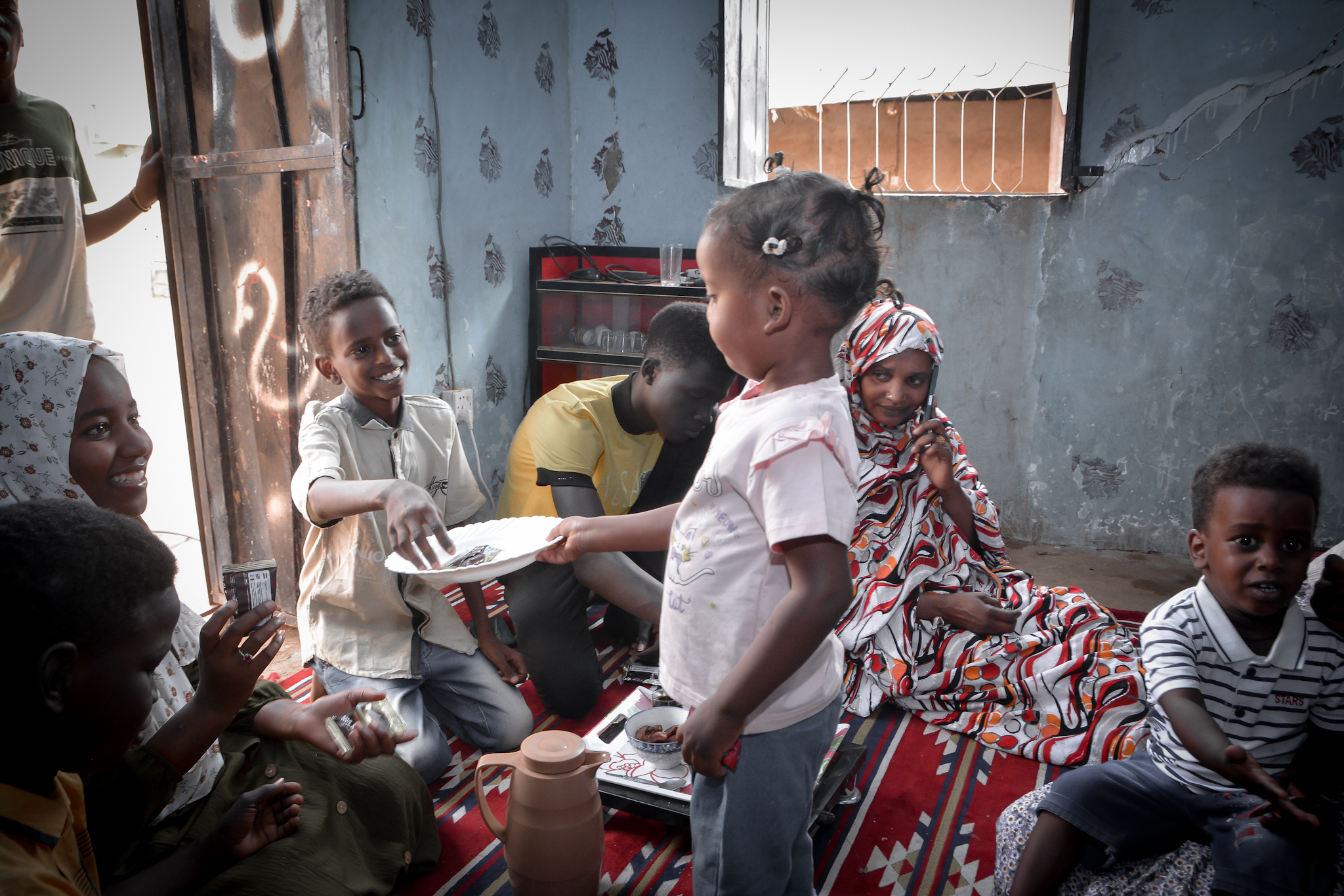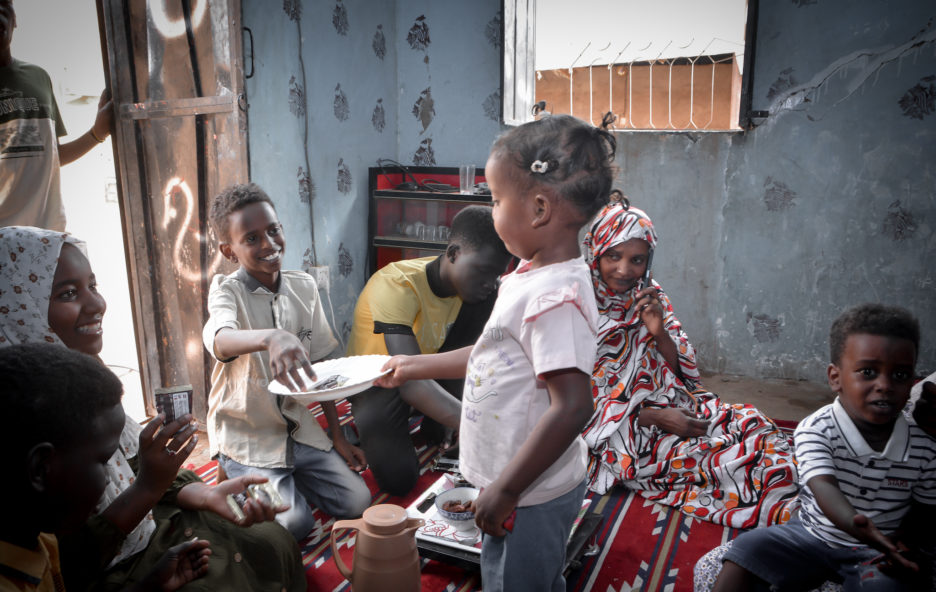In April 2023, families from SOS Children’s Villages in Sudan were evacuated from Khartoum to safer locations outside the city when war broke out.
The brutal conflict, which began in Sudan’s capital Khartoum in April 2023, has been spreading steadily to eastern and southern Sudan – parts of the country that had previously been considered safe.
SOS Children’s Villages in Sudan continues to monitor the situation closely and adjust safety protocols as events unfold. The National Director of SOS Children’s Villages in Sudan shares his thoughts on the situation and how SOS Children’s Villages is helping support children and families impacted by the war.
You can read our latest update on the conflict here.
Q. In general, how is the situation in Sudan, especially for children and families?
A. The economic situation is very bad. Most families, initially from Khartoum and Gezira states, fled their towns and villages and are living as IDPs (internally displaced persons) in other safe states.
They lost their houses, money, vehicles and all they saved in their lives. They’ve lost the little money they have renting houses in their areas of refuge.
Families are not able to meet their basic needs of food, health services, clothing. They’re living under the stress of not being able to support their children. And all schools or colleges are closed.
The families who can get financial support from relatives crossed the borders to neighbouring countries (Egypt, Uganda, Rwanda, etc.) to enable their children to get basic needs, find safe places, and continue their education.
Access to health services and education for children and young people is really the greatest concern for me, as it is for most of the families.
Q. What does the school closure mean for the future of the children and the country?
A. The closure of schools and colleges is a nightmare for families in the war affected areas and even for those living in the ‘safe’ states.
Closure of schools means the futures of children and youth are dim. They all live under high stress with the feeling that their hopes and aspirations for a better future have gone.
Q. How is the situation of aid organisations in general?
A. Many of the organisations are working to provide emergency support for the war affected people. The majority are providing the basic needs for the affected people. They are able to access those in need who are living in schools now utilised as gathering points for IDPs.
Q. How is the situation inside SOS Children’s Villages?
A. SOS caregivers went to their home villages and towns and have spread to different states. They are fine as we are able to get them financial support.
We are moving these families and young people to a safe state (Kassala state in East Sudan). They are all safe. The plan to evacuate them is in progress, and the preparation for that is ongoing. They are psychologically stable.
Q. There are great concerns about the killing and forced displacement of members of the Masalites. It is even said that this has the characteristics of genocide. Can you comment on this?
A. Yes, the characterisation of this as genocide is correct. That is evident by the selected killing and forced displacement of the members of Masalites tribe members.
The situation is improving as mass-killings have almost stopped.
Q. What could be the solution of this devastating conflict?
A. The solution is to stop the war immediately. The world should put more pressure on the ruling military group to sit with the Rapid Support Forces (RSF) for negotiations to end the war and prepare for peaceful transition to civil rule.


